9
The PP had its best results ever in the 2011 general election and Mariano Rajoy became PM (presidente). The PP’s campaign was designed around Zapatero’s mishandling of the economic recession and his implementation of cutbacks. Rajoy’s electoral pledge was to improve the economic situation, create jobs and stop the austerity measures.
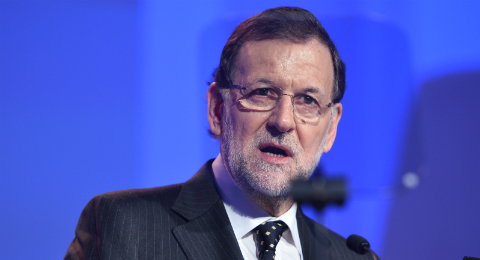
9.1 ECONOMY: BANKING CRISIS. MORE AUSTERITY MEASURES. SOCIAL INEQUALITY. ECONOMIC RECOVERY
As a result of the bursting of the housing bubble and the recession that ensued, unemployment soared. It reached close to 26% by 2012. Many families who could not afford their mortgage repayments any longer were evicted from their homes. As a consequence, banks accumulated a portfolio of ‘toxic assets’, that is, properties that had been repossessed and that they could not sell due to the stagnant property market. They started to run out of liquidity and the government had to resort to public money to rescue them, but it was not enough. The worst case was Bankia, where a hole of €23 billion was found. In 2012 the government had to request a credit from the EU amounting to €100 billion. Although the government was adamant this loan was not a sovereign debt ‘bailout’, as in the case of Ireland, the consequences were the same. The loan was to be repaid by the taxpayers, not by the banks which had been rescued.
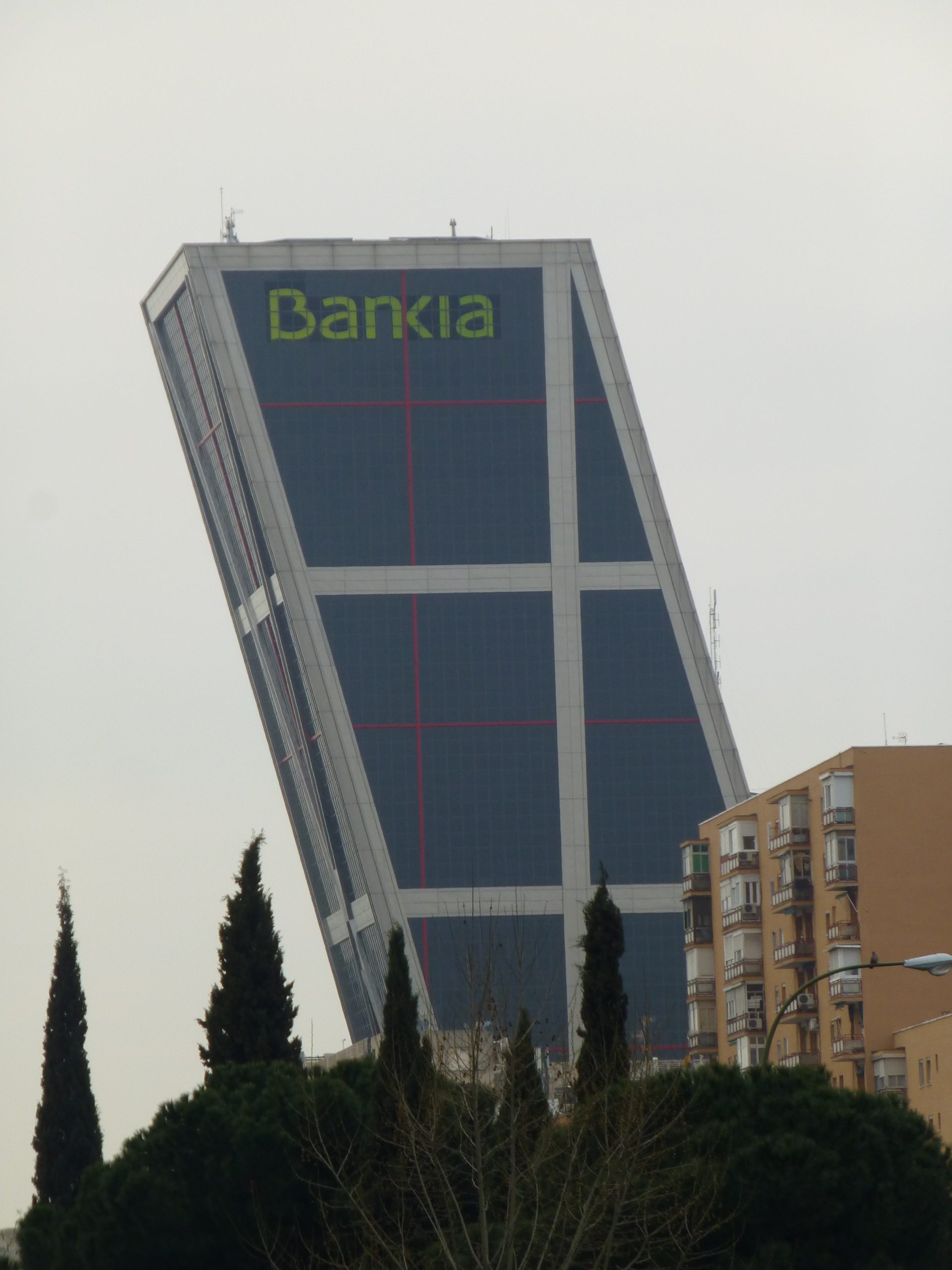
Rajoy, had to implement a harsh austerity policy in order to reduce the public deficit:
- Introduction of ‘copago’ for pensioners. Until then pensioners had had free access to medicines. This measure meant they had to pay 10% of the price of all their medicines with a maximum of 10 euro.
- Restrictions on health care for undocumented migrants. Their health cards were withdrawn. Only pregnancy care, children’s health services and emergencies remained free.
- Cutbacks in education: increase in the number of students per classroom, longer teaching hours for teachers, increase in university fees and reduction of university grants.
- Funding for research was slashed.
- Retirement pension cuts.
- Cuts on social benefits.
- An increase in taxes and VAT.
The government also embarked on a series of labour reform programmes whose main objective was to create a flexible job market. By adapting labour conditions to the needs of the market the unemployment rate started to decrease slowly from 2013 onwards. More temporary contracts with lower salaries became available. A new term entered the employment market: zero-hour contracts, and a new concept entered many people’s lives: precariousness. A person can be in employment and still find it difficult to cover their and their families’ basic needs. Paid sick leave and paid holidays seem to be no longer a right, but a luxury.
CULTURAL RESOURCES
In Spain and many other countries, the crisis hit the middle-class, the people with low incomes and the jobless hardest. NGOs and charities started to warn about an increase in inequality, exclusion and marginalization that was threatening to break the social cohesion achieved in Western Europe in the heyday of the welfare state. For the first time in many decades queues outside food banks and soup kitchens became a common sight. Citizens looked at politicians with suspicion. Many did not agree with the way they had to shoulder the banks’ mismanagement whilst executives, shareholders and the wealthy, in general, not only did not get punished but became even richer. In Spain protests organised by the ‘mareas’ and other civic platforms were a regular occurrence and in 2015 Rajoy’s government decided to confront these displays of civil discontent by introducing one of the most controversial laws since the advent of democracy in Spain: Ley de Seguridad Ciudadana (Public Safety Act), widely known as ‘Ley Mordaza’ (‘Gag Law’). This law established hefty fines for the organizers of these protests and severe penalties for protesters confronting police officers on duty and demonstrating outside politicians’ homes or public buildings. Taking and disseminating images of police officers during demonstrations are also penalised and police statements are always taken at face value. The critics of this law consider that it contravenes the fundamental democratic right to freedom of expression.
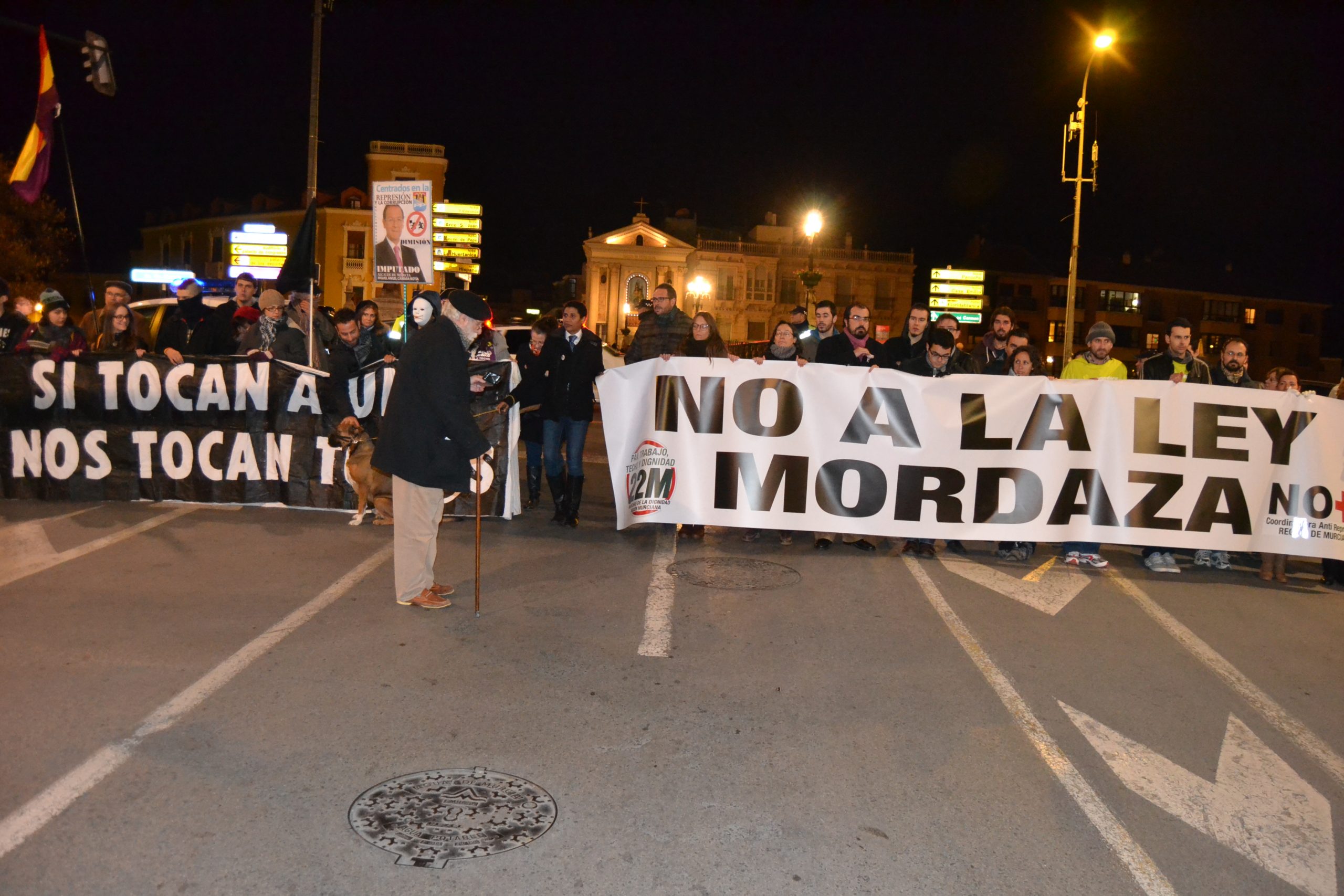
CULTURAL RESOURCES
Explicación de la Ley Mordaza (in Spanish)
In 2014 Spain started to come out of the recession, but the austerity measures have taken their toll and the future is still very uncertain.
9.2 MAKING PEACE IN THE BASQUE COUNTRY
A singular ‘peace process’ took place in the Basque Country. Its singularity lay in the fact that it was driven by the political party that had supported ETA for decades, Batasuna. With the PP in government, trying to engage in a dialogue to end the violence in the Basque Country was futile. The PP prided themselves on having a hard line against the organisation aiming at a its total defeat. Also, several associations of ETA victims had become significantly influential and were very vocal against establishing any kind of dialogue with ETA or reversing any of the harshest penitentiary measures implemented against ETA prisoners, such as dispersion, once the 2011 ceasefire was in place.
The Basque Nationalist Left (Batasuna) had nurtured close international contacts for decades and, once they concluded that senseless violence had gone too far and that politics should take over, they resorted to these contacts to make progress. The 2011 Aiete Conference in San Sebastian was one big step that had produced a permanent ceasefire that looked very solid. Dozens of Basque politicians and other citizens threatened by ETA, who had to live their daily lives in the company of bodyguards, could now lead a normal life. An International Verification Commission for the Ceasefire in the Basque Country (IVC) was established. In 2014 the IVC travelled to the Basque Country and confirmed that ETA was willing to put their arms beyond use. Rajoy’s government considered the IVC with suspicion and hostility. The IVC members found it hard to believe that a government who was being offered a peaceful way out of a long and bloody conflict was unwilling to make any moves to facilitate it. Regardless of the government’s attitude and despite further arrests of ETA members taking place, the organisation went ahead with this unilateral peace process and in 2017 disclosed the location of their weapons caches in the French Basque Country. The French police confiscated 3.5 tonnes of arms and explosives. In 2018 ETA announced its full dissolution.
The conflict is not entirely over. There are some 260 prisoners dispersed in Spanish and French prisons, some of them suffering from serious or terminal illnesses. There are also around 300 Basque refugees and exiles living abroad. The French government appears to be open to a review of the situation of ETA prisoners in their territory, but Spain is finding it difficult to take any political action that might infuriate the associations of ETA victims.
Meanwhile, Basque society is coming to terms with the suffering and damage caused by decades of violence. Unsurprisingly, there are different, and frequently opposite, views when it comes to the nature of the conflict, who can be considered a victim and whether the Basque Country has a right to decide on the issue of independence.
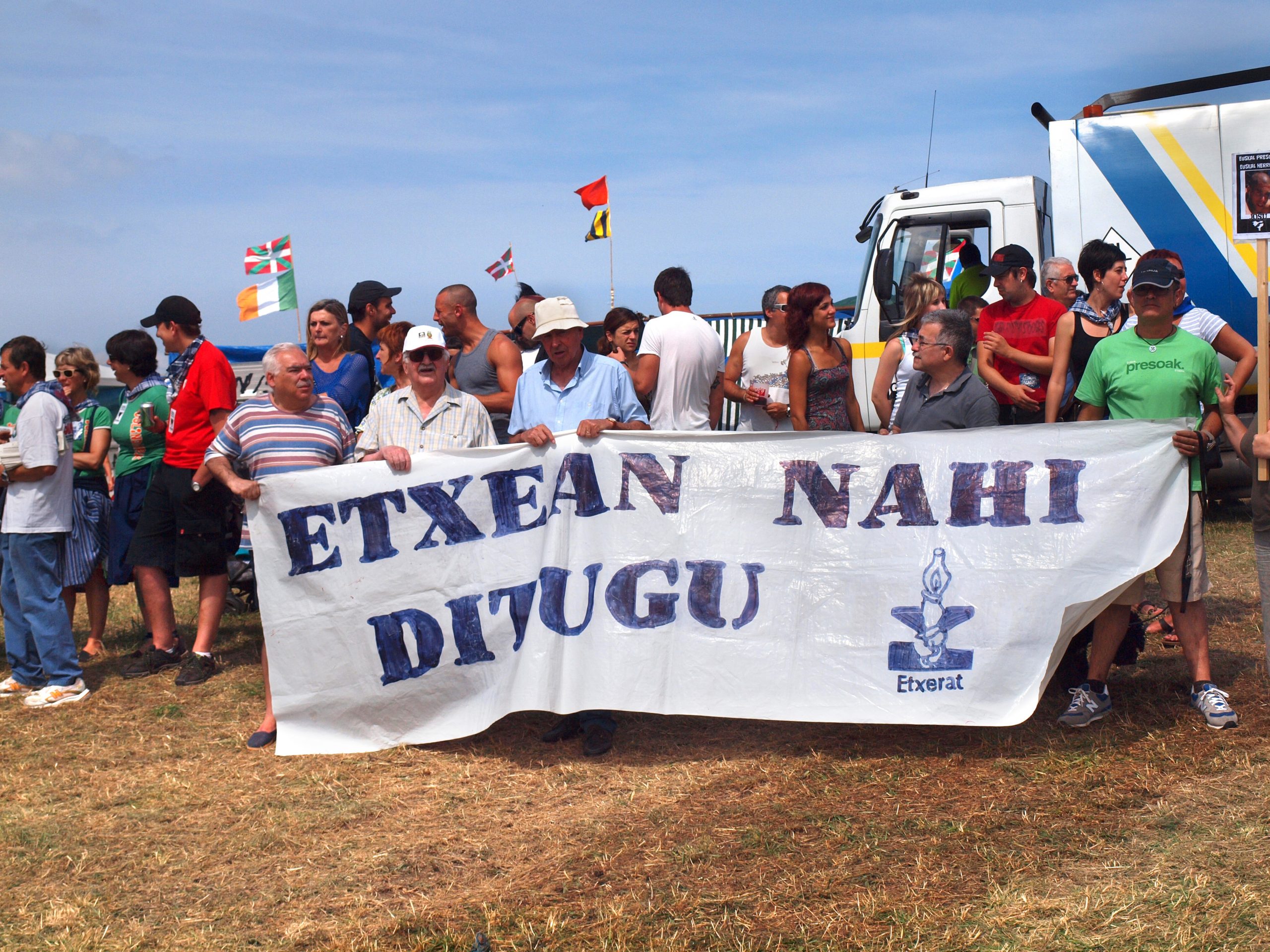
Note the Irish flag together with the Basque flag. Political conflict in Northern Ireland and the Basque Country has created strong links between these two parts of the world.
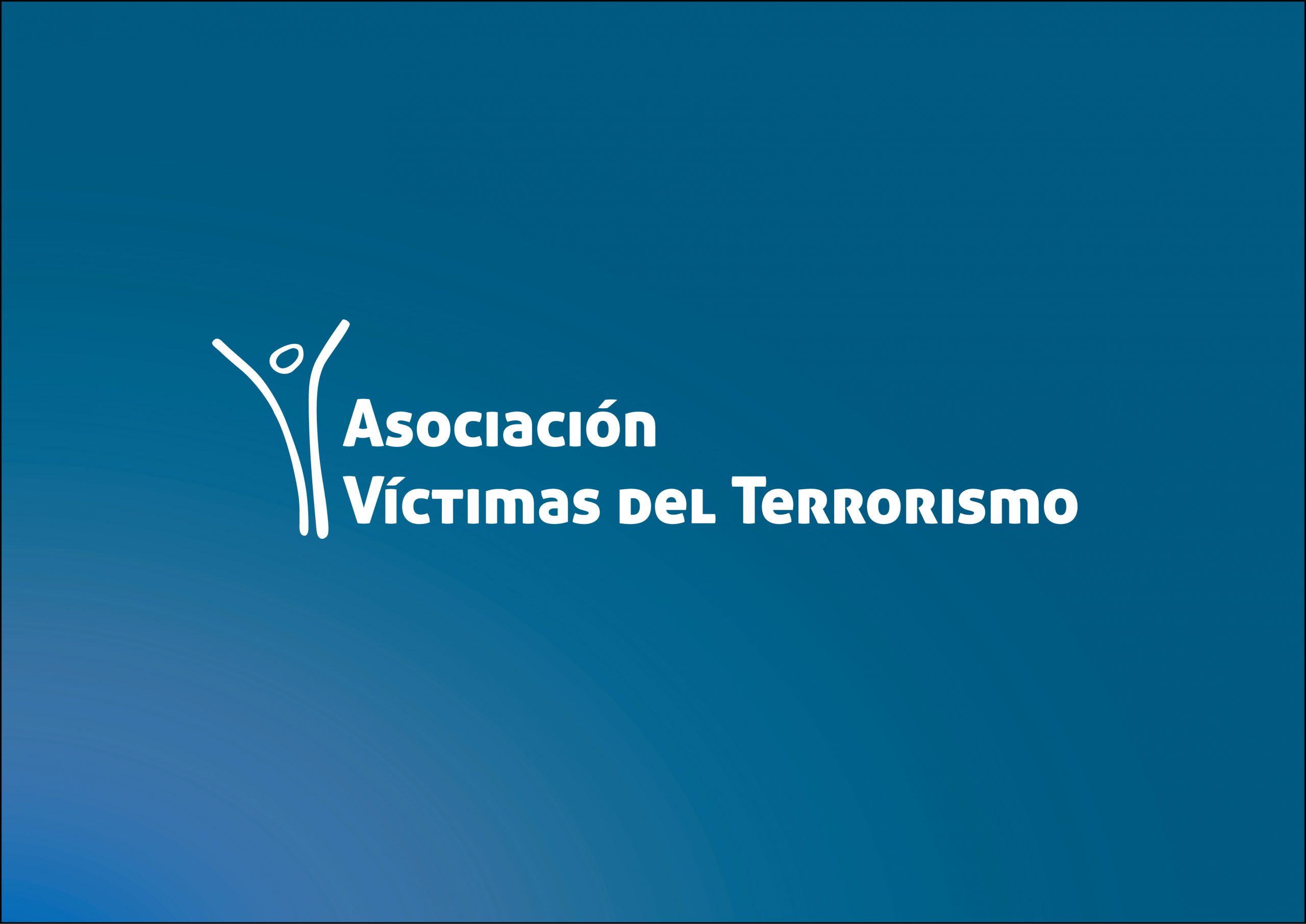
Permission by AVT
CULTURAL RESOURCES
FILMS
The End of ETA (El fin de ETA, 2017) Netflix documentary.
Spanish Affair (Ocho apellidos vascos, 2014) Comedy film about the Basque conflict, and Basque and Andalusian stereotypes (available from the library)
9.3 THE CATALAN CONFLICT EXPLODES
The Basque Country and Catalonia are the two territories in Spain that have harboured fluctuating aspirations for independence for decades, if not centuries. Whilst in the Basque Country those aspirations turned violent, Catalonian nationalism seemed to run smoothly within the political arena.
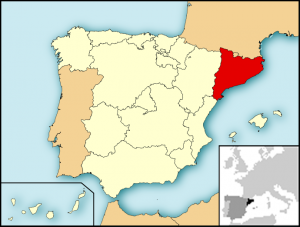
CATALUÑA (Spanish)
CATALONIA (English)
Capital: Barcelona
Population: 7.7 m (2020)
By the early 2000s, the Catalan government (Generalitat) considered that the 1976 Statute of Autonomy needed upgrading and, during Zapatero’s mandate, they embarked on drafting a new statute that would have to be approved in both the Catalan and the Spanish parliaments. Control over taxes was one of the most important issues that the Catalan government wanted to reform. The Basque Country and Navarre have full fiscal control since the Transition, due to a specific arrangement based on legal charters of old, known as ‘fueros’. This was not the case with Catalonia, that had the same fiscal arrangement as the rest of the autonomous regions; that is, most taxes within the region were collected by the State, which would then finance the needs of each region. The draft statute approved by the Catalan Parliament in 2006 fell short of the aspirations of some nationalist parties but managed to establish that 50% of the VAT would be collected and administered within the region. Since all regional autonomies are entitled to the same fiscal treatment, with the exception of the Basque Country and Navarre, this reform was applied to all of them. The draft statute moved to the Spanish Parliament for consideration and was approved after having curtailed some of the articles already approved in Catalonia. This was the beginning of the breakdown in the so far cordial relationship between Catalonia and Madrid. To add insult to injury the opposition party PP took the document to the Constitutional Court, which eventually ruled that 14 articles were unconstitutional and vetoed the use of the term ‘nation’, referring to Catalonia, everywhere in the document except in the preamble.
The economic crisis unleashed in 2008 acted as a catalyst for the conflict that was to unfold. By 2012 Catalonia, immersed in debt, had to be bailed out by the Spanish government. Catalonia is the region with the highest GDP in Spain and many Catalans concluded that Catalonia was contributing far too much to the Spanish coffers and that Catalan income was leaving Catalonia to benefit other regions. On 11 November 2012, the Diada (national day of Catalonia), a million and a half Catalans marched on the streets of Barcelona, as it is typical on this date, but this time clamouring for independence.
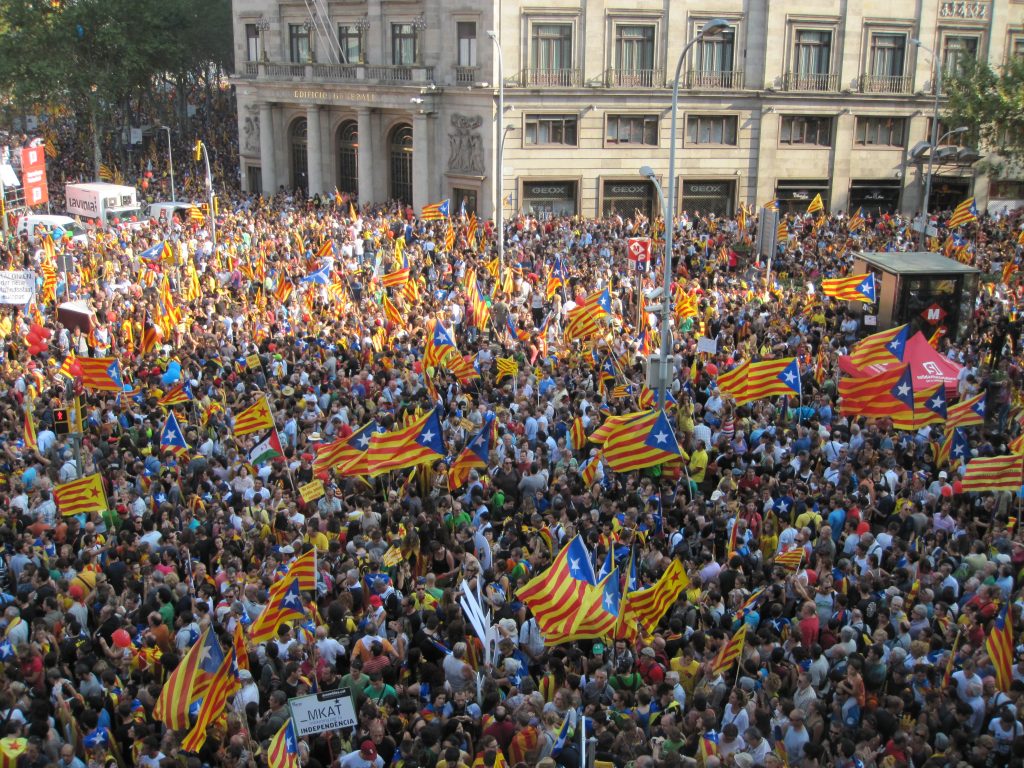
The following year the Catalan National Assembly (a civic platform founded in 2012 to promote Catalan independence) organised a human chain running 480 Km from north to south in Catalonia in favour of independence.
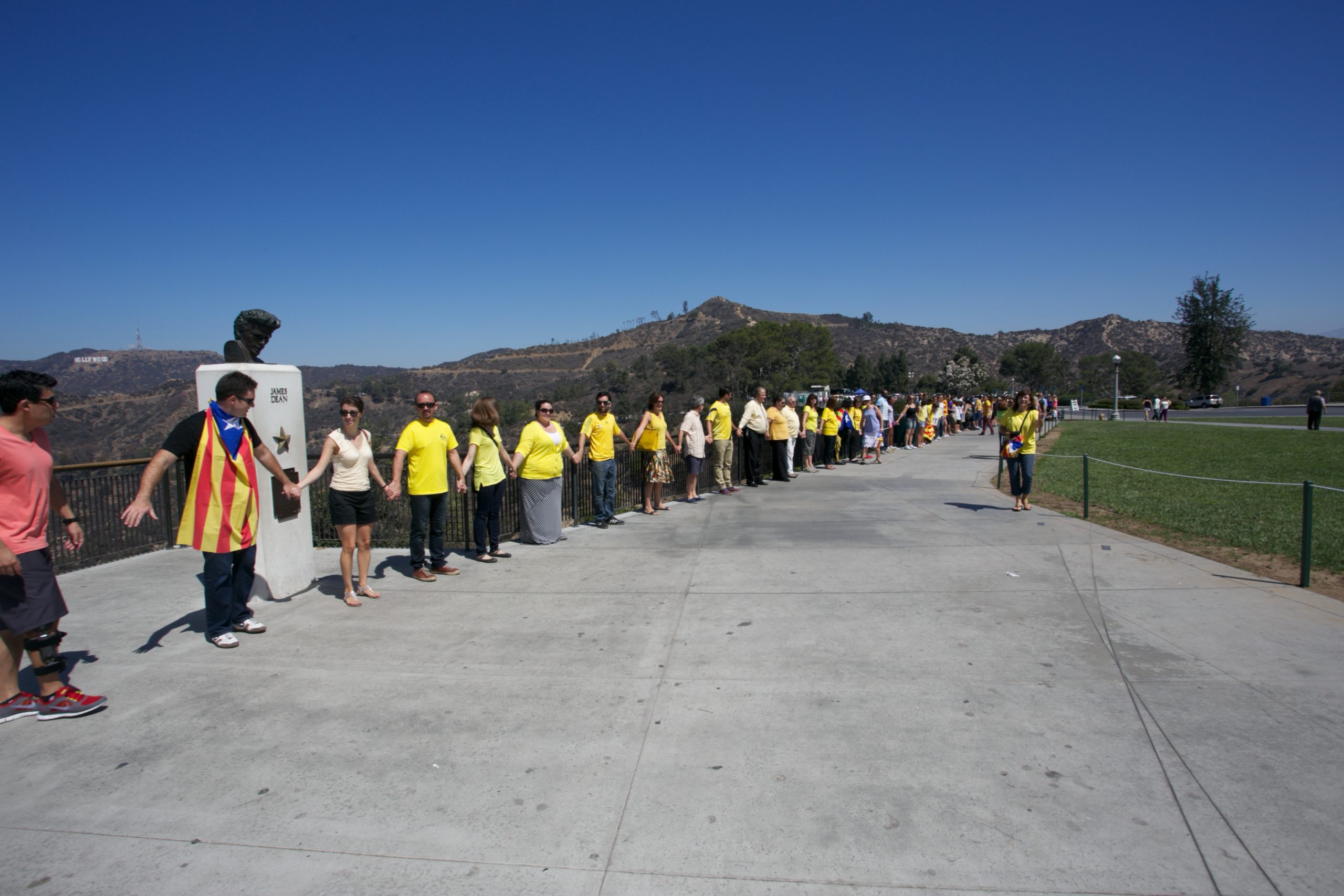
Until 2013 the pro-independence movement in Catalonia was a grassroots mobilization that was gathering momentum. In view of the situation, the Catalan government at the time, in the hands of the conservative nationalist party CiU, decided to get involved in the movement for independence, especially since Scotland was organising an independence referendum for September 2014. Unlike in the case of Scotland, the Spanish Constitution firmly establishes the indivisibility of the Spanish state and, therefore, any referendum on independence is illegal. Nevertheless, the Catalan government organised a symbolic consultation (banned by the Constitutional Court) for November 2014. Two million people out of six million on the electoral register voted. The result was 80% in favour of independence.
A regional election took place in 2015. The pro-independence coalition Junts pel Sí won the election. Carles Puigdemont took office as the Catalan First Minister. The relationship between the Spanish government led by Rajoy and the Catalan government became strained to the limit. Rajoy refused to have any communication with Puigdemont, despite the latter’s requesting a meeting repeatedly. From this point onwards the Catalan government (a coalition of the main nationalist parties), the Catalan National Assembly and the Catalan cultural association Òmnium worked on a road map to make possible a unilateral referendum, which was finally scheduled for 1 October 2017.
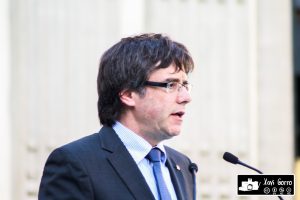
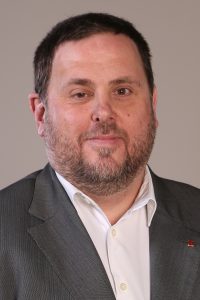
In the run-up to the referendum Catalan society became divided between feisty defenders of an independent Catalan republic, angered anti-independence protesters and bewildered spectators of a situation that was getting out of hand. Nearly 4,000 companies moved their headquarters out of Catalonia. The Spanish government braced itself for the coming referendum by deploying 10,000 extra police and Guardia Civil officers to the region and confiscating ballot boxes and papers.
On 1 October the illegal referendum took place. Ugly images of police brutality against the voters went viral around the world and portrayed the Spanish government as having lost control of the situation and having to resort to undemocratic practices. The Mossos d’Esquadra (regional police force) and the Catalan government fire fighters tried to protect the voters.
According to the Catalan authorities, the turn out for the referendum was 43%, with 90% voting in favour of independence. A few days later First Minister Puigdemont delivered a speech in Parliament assuming the mandate to declare an independent republic but suspending the declaration to facilitate a dialogue with the Spanish government. The pro-independence crowd waiting outside the Parliament moved from exultant joy to deep disappointment in a matter of seconds.
As a result of the declaration, the Spanish government imposed direct rule on Catalonia deposing Puigdemont and his government and dissolving the Catalan Parliament. The head of the Mossos d’Esquadra was dismissed from his post, despite having been praised recently as a hero for the way the Mossos handled the jihadist attacks in Barcelona and Cambrils the previous August (see below). Puigdemont and other members of government were charged with rebellion, sedition and misuse of public funds. Puigdemont fled to Belgium. The Deputy First Minister and leader of the left-wing nationalist party ERC, Oriol Junqueras, and others were arrested and taken to prison. New regional elections were scheduled for December 2017. The pro-independence liberal coalition Junts per Catalunya won and Puigdemont was re-elected with the votes from the pro-independence left-wing party ERC. Since he was exiled, Quim Torra became First Minister.
In 2019 the Supreme Court tried 12 Catalan politicians and leaders involved in the organisation of the referendum. They were given prison sentences ranging between 9 and 13 years. The sentences triggered days of protests in the streets of Catalonia.
POLITICAL PARTIES IN CATALONIA
PRO-INDEPENDENCE
Junts per Catalunya (JuntsXCat) (liberal coalition) Leader: Carles Puigdemont (in exile since 2017). Party in government in Catalonia.
ERC (left-wing) Leader: Oriol Junqueras (in prison since 2017). Party in government in Catalonia.
CUP (far left)
AGAINST INDEPENDENCE
Ciudadanos (Cs) (neoliberal)
PSC (centre-to-left) Catalan branch of PSOE.
Catalunya en Comú-Podem (left-wing coalition) Catalan branch of Podemos. Although they do not support an independent Catalonia, they are in favour of holding a referendum on this issue.
PP (centre-to-right)
CULTURAL RESOURCES
Catalonia’s bid for independence from Spain explained (article from BBC News with videos)
Catalonia, five days that shook the world (Euronews documentary)
Trial of Catalan separatist leaders opens amid political crisis in Spain (ITV News, 12 February 2019)
FILMS
Two Catalonias (Dos Cataluñas, 2018) Netflix documentary.
Spanish Affair 2 (Ocho apellidos catalanes, 2015) Comedy about Catalonia and Catalan, Basque and Andalusian stereotypes (available from the library)
In August 2017 a van drove into pedestrians in Las Ramblas boulevard, the most touristic area in Barcelona, killing 15 people and injuring more than 100. A similar attack took place a few hours later in the Catalan town of Cambrils. One person died and seven were injured. A police officer from the Mossos d’Esquadra shot dead the five perpetrators in Cambrils, who were linked to the attacks in Barcelona. All of them were members of a jihadist cell and mostly young Moroccan nationals who had been living in Spain for years. The day before the Barcelona attack two members of the same cell, one of them an imam and leader of the group, had blown themselves up accidentally while making a bomb. This accident had prompted the other cell members to carry out the attacks the following day.
The driver of the Barcelona attack was found a few days later and shot by the Mossos when they saw he was wearing a suicide vest, which turned out to be fake. Four other suspects were arrested in connection with the attacks. There are questions about the relationship between the imam and the Spanish intelligence services which have strained even further the already poor relations between the Catalan regional government and the Spanish central government.
9.4 THE END OF THE TWO-PARTY SYSTEM
On December 2015 a general election was due. Rajoy’s PP obtained the largest number of votes (28.7%) but lost 64 seats in Parliament and was unable to form a government. The Socialists (PSOE) came second (22%) but they also suffered losses, 20 seats fewer that in the previous election. Two new political parties had contested the election this time and had reaped excellent results, especially the left-wing Podemos (We can), which obtained 20.7% of the votes and 69 seats. The other newcomer was the centre right Ciudadanos (Citizens) with nearly 14% of the votes and 40 seats. This result heralded a new era in Spanish politics. The two-party system was giving way to a multi-party system in which governability would only be possible through alliances and coalitions between parties. Decades of disappointment with the two major parties, involved in a string of corruption cases, had paved the way for new parties led by a younger generation.
Ciudadanos (Cs) was founded in Catalonia in 2006 to confront Catalan nationalist parties. Its leader is Albert Rivera. Cs performance in regional elections was poor until 2015 when they became the second largest party in the Catalan Parliament winning 18% of the votes. Since 2015 they have also become an important player in general elections. Cs have often claimed that they are neither left not right, but their political manifesto falls into the centre-to-right spectrum, and it is not very different from the PP’s. Their economic ideology is strongly neoliberal, favouring free markets and a minimum intervention on the part of the State in economic matters. Their view of Spain is as a centralist nation-state. They oppose Catalan nationalism and, at times, have spoken against the regional arrangement in place in Spain since the Transition.
Podemos was founded in 2014 by leftist lecturers from the Department of Politics and Sociology of the Universidad Complutense in Madrid. One of them, Pablo Iglesias, is the charismatic leader of the party. The party was inspired by the 15M (the ‘movimiento de los indignados’) and considers itself a transversal political movement, that is, its ideology is not explained by the traditional right/left dichotomy. They rather see themselves as a party able to agglutinate people who consider themselves ‘outsiders’ in the current neoliberal system that favours the elites, and want to challenge the established hegemonies in all spheres: economic, social, environmental, gender, race, etc. In any case, in the traditional political parlance, they can be safely considered a left-wing party. They are in favour of increasing taxes for the big corporations and the wealthy, strengthening social services, building a society where women achieve full equality with men and implementing efficient measures to save the environment. Their view of Spain is as a multi-national state.
Podemos entered the electoral arena in the 2014 European Parliament election and, to everybody’s surprise, took nearly 8% of the votes in Spain, winning 5 MEPs. Since then, as is the case with Ciudadanos, they have played an important role when it comes to building alliances to facilitate the formation of a government.
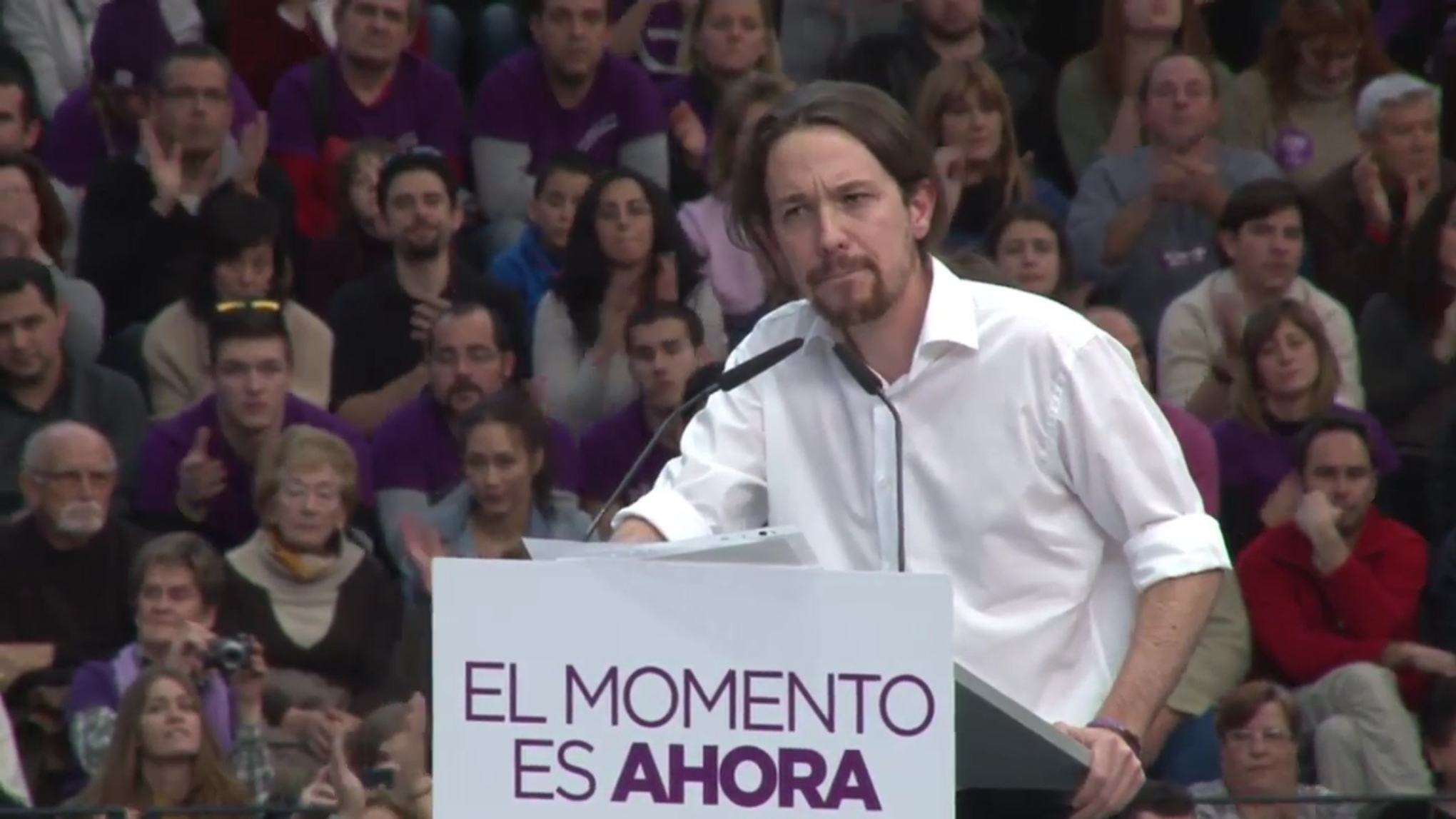
After the 2015 general election, the different political parties were unable to reach any agreement to elect a PM, and a new general election was scheduled for 2016. The new election yielded very similar results, with a slight improvement for the PP. After long negotiations, Mariano Rajoy was finally elected as PM, with the support of Ciudadanos. Between the 2015 general election and the inauguration of Rajoy as PM in 2016, nearly a year (314 days) had elapsed without a government.
9.5 INSTITUTIONAL CORRUPTION AND GOVERNMENT’S FALL
Rajoy’s mandate was to be brief. Although he survived a vote of no confidence registered by Unidas Podemos in 2017 over the corruption scandals the PP was involved in, a new vote of no confidence in 2018, finally ousted him from government. The successful motion was tabled by the leader of the opposition party PSOE, Pedro Sánchez, and was supported by the rest of parties in Parliament with the exception of Ciudadanos, which ironically had condemned the PP repeatedly over its corruption scandals. The vote took place a few days after the Audiencia Nacional (High Court) announced its verdict on the Gürtel Affair, a wide and intricate system of kickbacks-for-contracts, and sentenced several former members of the PP to prison. The court found the whole party had benefited from this ‘system of institutional corruption’.
The Gürtel case was just one of many cases of corruption and misconduct linked to institutions and political parties, especially the PP, for decades that have not even left the monarchy untouched.
In 2011 King Juan Carlos I’s son-in-law, Iñaki Urdangarín, was accused of being involved in the Nóos case. Urdangarín was one of the directors of the Nóos Institute, a non-profit organization providing consultancy services. He was charged with misappropriation of public funds, fraud, tax evasion and trading in influence. He has been shunned by the royal family, but both his wife and former king Juan Carlos I have been tainted by this affair. He was sentenced to 5 years and 10 months and entered prison in 2018.
In 2012 King Juan Carlos was discredited even further by a hunting trip he made to Botswana, which only became public after he had broken his hip and had to be airlifted back to Spain. He was bitterly criticized on ethical grounds by the press, opposition parties and the citizenry in general. At the time Spaniards were suffering the worst of the economic crisis and were bombarded with austerity measures and his pleasure trip did not go down well. Besides, he appeared in a photograph posing in front of a recently killed elephant, which lost him his position as honorary president of the World Wide Fund for Nature. If all this was not shameful enough, his lover had accompanied him on the trip. Despite apologising publicly for his behaviour, the royal institution had suffered an irreparable blow to its credibility. In 2014 King Juan Carlos I abdicated the throne in favour of his son Felipe VI, the current King of Spain.
Another high-profile corruption scandal involved the misuse of corporate credit cards, known as ‘black cards’, by the then president of Bankia, Rodrigo Rato, and other executives of the bank, just before the institution’s fall and bailout in 2012. Rato was a prominent figure in the PP and had been Finance Minister and Deputy Prime Minister in Aznar’s government, and managing director of the IMF (International Monetary Fund). He was tried and sentenced to four and a half years in prison in 2018.
Although the PP is the party with the greatest number of corruption cases being investigated, most other parties, both national and regional, are no strangers to corruption. In recent times, Socialist politicians have been involved in corruption scandals in Andalusia and Galicia, and back in time, under Felipe González in the 1990s, the then Deputy Prime Minister had to resign after a case of trading in influence. The general impression is that corruption and misconduct in public office is endemic to the system and very difficult to eradicate.
CULTURAL RESOURCES
Spanish king’s brother-in-law jailed over corruption FRANCE 24 English (19 June 2018)
Former IMF chief Rodrigo Rato in the dock on corruption charges Euronews (26 September 2016)
FILMS
Retribution (El desconocido, 2015) (Netflix) Thriller about a dishonest banker who is held hostage in his own car booby-trapped by a revengeful extortionist.
7 años (2016) (Netflix) Drama about four business partners who hire a mediator to decide which of them will go to prison for their financial crimes.
El reino (2018) (available from the library) Thriller about a politician leading a high-class lifestyle thanks to bribes and kickbacks who is exposed by the press and abandoned by his party.
Smoke and Mirrors (El hombre de las mil caras, 2016) (Netflix) Thriller based on real events that took place during González’s Socialist government in the 1990s. A former secret agent for the Spanish government helps a corrupt former director general of the Guardia Civil to leave Spain and safeguard the funds he had embezzled during his office.
The Minions of Midas (Los favoritos de Midas, 2020) (Netflix) Series based on a short story by American writer Jack London (1901) about a successful and honest businessman who is blackmailed in a very unusual way by a mysterious organisation.
En las elecciones de 2011 el PP obtuvo los mejores resultados de su historia y Mariano Rajoy fue investido presidente. Sus promesas electorales se basaban en mejorar la situación económica de España y acabar con las medidas de austeridad.
ECONOMÍA: CRISIS BANCARIA. MÁS MEDIDAS DE AUSTERIDAD. DESIGUALDAD SOCIAL. RECUPERACIÓN
El pinchazo de la burbuja inmobiliaria había provocado una subida del desempleo, que en 2012 casi llegaba al 26%. Muchas familias no podían pagar sus hipotecas y perdieron sus viviendas. Los bancos no ganaron nada con estos desahucios porque las propiedades no se podían vender debido a la situación económica. Empezó una crisis bancaria, ya que muchos bancos no disponían de liquidez, y el gobierno tuvo que rescatarlos. El peor caso fue Bankia, el mayor rescate de la historia de España. El gobierno tuvo que pedir un crédito de 100.000 millones de euros a la UE.
Rajoy tuvo que introducir una serie de medidas para reducir el déficit público:
- El ‘copago’. Los pensionistas empezaron a pagar el 10% del precio de sus medicamentos con un máximo de 10 euros.
- Los inmigrantes irregulares perdieron su tarjeta sanitaria. Solo tenían acceso a la sanidad pública gratuita las mujeres embarazadas, los niños y los casos de urgencias.
- Recortes en la educación: aumento del número de alumnos por aula, incremento de las horas lectivas para los profesores, aumento de las tasas universitarias y reducción de la cuantía de las becas.
- Recortes en la inversión en investigación científica.
- Recortes en las pensiones.
- Recortes en los subsidios y ayudas sociales.
- Aumento de los impuestos y del IVA.
El gobierno también introdujo una serie de reformas laborales cuyo objetivo era flexibilizar el mercado de trabajo. El desempleo empezó a descender, pero la mayoría de los trabajos disponibles eran temporales y con sueldos bajos. Por primera vez se hablaba de ‘contratos de cero horas’. Las clases medias, trabajadores con ingresos bajos y parados son los que más han sufrido la crisis.
Las ONGs han llamado la atención sobre el aumento de las desigualdades sociales, visibles con la aparición de los bancos de alimentos y las cocinas solidarias. Los ciudadanos estaban cada vez más descontentos con los políticos y los banqueros y se empezaron a organizar protestas de las ‘mareas’ y otras plataformas cívicas. El gobierno reaccionó a estas protestas introduciendo la polémica Ley de Seguridad Ciudadana, más conocida como ‘Ley Mordaza’. Esta ley castiga con multas las protestas no autorizadas y la toma de fotos a la policía durante las manifestaciones. Sus críticos consideran que vulnera la libertad de expresión.
LA PAZ LLEGA AL PAÍS VASCO
La izquierda abertzale, es decir, el partido político Batasuna y asociaciones que defienden la independencia de Euskal Herria (País Vasco) fue el motor que llevó al desarme y disolución de ETA, con el apoyo de personalidades y agentes extranjeros expertos en conflictos armados. El gobierno del PP, influido por las asociaciones de victimas de ETA, se negó a dialogar con el grupo terrorista. La conferencia internacional de Aiete en San Sebastián en 2011 había dado como resultado la declaración de tregua definitiva de ETA. En 2014 la Comisión Internacional de Verificación del desarme en el País Vasco confirmó que ETA estaba dispuesta a desarmarse. En 2017 ETA dio a conocer los lugares en los que escondía sus armas, conocidos como zulos, en el País Vasco en Francia y en 2018 se disolvió como organización armada.
Aún quedan unos 260 presos dispersos en cárceles españolas y francesas, así como refugiados y exiliados. Por otra parte, la sociedad vasca está intentando buscar formas para poder superar las secuelas del conflicto.
EL CONFLICTO CATALÁN ESTALLA
A diferencia del País Vasco, Cataluña, a pesar de ser otro territorio con aspiraciones independentistas, no había causado grandes problemas políticos al estado español. Todo esto cambió a partir de la reforma del Estatuto de Autonomía de Cataluña en 2006, durante el gobierno de Zapatero. Los partidos nacionalistas catalanes tenían aspiraciones de un mayor autogobierno, especialmente en cuestiones fiscales. Con la reforma Cataluña consiguió algunas ventajas fiscales como la recaudación del 50% del IVA. Aunque las reformas no satisfacían completamente a algunos partidos nacionalistas, el estatuto se aprobó en el parlamento catalán. Después de algunos cambios, que no gustaron nada a los partidos nacionalistas catalanes, también se aprobó en el parlamento español. A pesar de esto, el PP decidió presentar un recurso de inconstitucionalidad contra las reformas. El Tribunal Constitucional sentenció que 14 artículos eran inconstitucionales y eliminó el término ‘nación’ del documento, excepto en el preámbulo. Estaba claro que esto iba a traer problemas en un futuro cercano.
La crisis económica que estalló en 2008 se convirtió en el catalizador del descontento en Cataluña. En 2012 el gobierno español tuvo que rescatar al catalán, que tenía un gran déficit en sus cuentas. Teniendo en cuenta que Cataluña tiene el PIB (Producto Interior Bruto) más alto de todo España, muchos catalanes llegaron a la conclusión de que Cataluña estaba contribuyendo demasiado al fondo común y que estaba perdiendo dinero. La Diada de 2012 reunió a un millón y medio de catalanes portando esteladas independentistas y gritando ‘independencia’. En la Diada del año siguiente la Asamblea Nacional Catalana organizó una cadena humana de 480 Km. que cruzaba Cataluña de norte a sur a favor de la independencia.
A partir de ese momento el gobierno catalán, en manos del partido nacionalista conservador CiU, se involucró en el movimiento independentista. Inspirados por el referéndum sobre la independencia en Escocia de 2014, se organizó una consulta, prohibida por el Tribunal Constitucional. Dos millones de catalanes acudieron a votar, de un censo de seis millones, y el 80% votó a favor de la independencia.
En las elecciones autonómicas de 2015 la coalición independentista Junts pel Sí ganó y Carles Puigdemont se convirtió en presidente de Cataluña. Rajoy se negó a reunirse con Puigdemont para hablar de la situación y el gobierno catalán, la Asamblea Nacional Catalana y la organización cultural Òmnium decidieron actuar por su cuenta y organizar un referéndum para el 1 de octubre de 2017.
La relación entre el gobierno español y el catalán se había roto por completo. La sociedad catalana empezó a polarizarse entre los defensores de una república catalana independiente y los que estaban en contra. Casi 4.000 empresas trasladaron su sede fuera de Cataluña. Ante la llegada inminente de la fecha del referéndum, el gobierno español envió 10.000 agentes de la Policía y Guardia Civil a Cataluña y mandó confiscar urnas y papeletas.
El día del referéndum cientos de miles de catalanes salieron a votar. Los agentes de la Policía y Guardia Civil empezaron a golpear y atacar a los votantes y las imágenes recorrieron el mundo, desacreditando a la democracia española. Los Mossos d’Esquadra (policía autonómica) y los bomberos de la Generalitat (gobierno catalán) intentaron defender a los votantes.
Según datos de las autoridades catalanas, un 43% de los catalanes con derecho a voto acudió a las urnas y el 90% votó a favor de la independencia. Unos días más tarde, ante una multitud expectante, el presidente Puigdemont anunció que asumía el mandato para declarar una república independiente pero que la declaración quedaba suspendida para facilitar el diálogo con el gobierno de España.
El gobierno de Rajoy activó el artículo 155 de la Constitución para disolver el gobierno y parlamento de Cataluña y depuso al jefe de los Mossos d’Esquadra. Puigdemont y otros miembros del gobierno fueron acusados de rebelión, sedición y malversación de fondos. Puigdemont huyo a Bruselas, pero el vicepresidente de la Generalitat, Oriol Junqueras, y otros fueron arrestado y encarcelados. En diciembre de 2017 se convocaron nuevas elecciones autonómicas y la coalición independentista Junts per Catalunya liderada por Puigdemont obtuvo la victoria. Debido a que el líder de la coalición estaba exiliado, Quim Torra se convirtió en el nuevo presidente de la Generalitat.
En 2019 el Tribunal Supremo condenó a 12 políticos líderes catalanes implicados en la organización del referéndum ilegal a penas de prisión de entre 9 y 12 años, lo que provocó protestas que duraron varios días.
EL FIN DEL BIPARTIDISMO
Aunque el PP ganó las elecciones generales en diciembre de 2015, no pudo formar gobierno. Tanto el PP como el PSOE, el segundo partido más votado, habían perdido un número considerable de escaños. Dos nuevos partidos políticos, Ciudadanos y Podemos, habían entrado en escena y habían obtenido muy buenos resultados, especialmente Podemos. Parecía que la era del bipartidismo llegaba a su fin y que era necesario llegar a acuerdos y formar alianzas entre partidos para poder gobernar. Esta nueva situación se podía interpretar como el cansancio de muchos ciudadanos ante los casos de corrupción de los dos partidos principales y la necesidad de renovar las instituciones.
Ciudadanos (Cs) fue fundado en 2006 en Cataluña para oponerse a los partidos nacionalistas catalanes. Cs se puede clasificar como un partido de centroderecha, no muy diferente del PP. Su ideología económica es profundamente neoliberal, o sea, basada en la libertad de los mercados con la mínima intervención del estado. Se oponen a los nacionalismos periféricos (catalán, vasco) y al estado de las autonomías en general. Su visión de España es la de un estado-nación centralizado.
Podemos es un partido fundado en 2014 por profesores del Departamento de Ciencias Políticas y Sociología de la Universidad Complutense de Madrid e inspirado en el movimiento 15M. Su líder es Pablo Iglesias. Se consideran un partido político transversal, es decir, que intenta aglutinar a todas las personas que se sienten abandonadas por el sistema neoliberal y sus élites económicas y políticas. Están a favor de aumentar los impuestos a las grandes empresas y a los más ricos, fortalecer los servicios sociales, construir una sociedad igualitaria en cuestión de género y promover medidas para salvar el medioambiente. Ven a España como un estado plurinacional.
Después de las elecciones generales de 2015 fue imposible llegar a ningún acuerdo para elegir presidente, así que en 2016 hubo otras elecciones generales, con resultados parecidos. Al final, Mariano Rajoy fue investido presidente con el apoyo de Cs.
CORRUPCIÓN INSTITUCIONAL Y CAÍDA DEL GOBIERNO
Rajoy no duró mucho en el poder. Los casos de corrupción en los que su partido estaba implicado acabaron por destruirle. Aunque sobrevivió a una moción de censura presentada por Podemos en 2017, un año más tarde perdió la moción presentada por el PSOE. Todos los partidos votaron a favor de la moción, excepto Ciudadanos. La moción fue presentada unos días después de que la Audiencia Nacional condenase a varios miembros del PP por el caso Gürtel, una compleja trama de corrupción, que consistía en sobornos, comisiones y regalos a políticos del PP por parte de empresarios a cambio de la adjudicación de contratos.
No solo los partidos políticos se han visto implicados en escándalos de corrupción, también la monarquía. Iñaki Urdangarín, yerno del anterior rey Juan Carlos I fue acusado de malversación de dinero público, evasión fiscal y tráfico de influencias en el caso Nóos en 2011. Entró en prisión en 2018 para cumplir una condena de 5 años y 10 meses. El escándalo también salpicó al rey y a su hija, la esposa de Urdangarín.
La imagen del rey Juan Carlos I quedó muy dañada en 2012 cuando se descubrió que, en plena crisis económica, se había ido a cazar a Botsuana acompañado de su amante. Una fotografía en la que posaba al lado de un elefante muerto le costó su puesto de presidente honorario del Fondo Mundial para la Naturaleza. Pidió disculpas públicamente, pero en 2014 tomó la decisión de renunciar al trono y abdicar en su hijo Felipe VI, actual rey de España.
Otro de los escándalos más importantes de corrupción vinculados al PP, fue el caso de las tarjetas ‘black’. El entonces presidente de Bankia, Rodrigo Rato, y otros ejecutivos, fueron acusados del uso indebido de tarjetas de crédito corporativas justo antes de la caída y rescate del banco en 2012. Rato era uno de los políticos más importantes del PP. Había sido ministro de Economía y vicepresidente del gobierno de Aznar, además de director gerente del FMI (Fondo Monetario Internacional). Fue condenado a cuatro años y medio de prisión en 2018.
Aunque el PP acumula la mayoría de los casos de corrupción, casi todos los demás partidos, regionales y estatales, tienen casos pendientes. La corrupción parece haberse convertido en un problema endémico de la política española.
Media Attributions
- Rajoy
- Puigdemont
- Titular del Departament d’Economia i Hisenda i Vicepresident del
- Pablo Iglesias-Podemos
